2025 PROLAB awardees announced
This year’s Promoting Research Opportunities for Latin American Biochemists, or PROLAB, travel grants go to seven early-career scientists from Uruguay, Argentina and Chile. Grantees will work in labs across Canada and the United States. Each recipient will receive $7,000 to fund travel and living expenses.
Since 2012, the American Society for Biochemistry and Molecular Biology, the Pan-American Society for Biochemistry and Molecular Biology and the International Union for Biochemistry and Molecular Biology have awarded PROLAB research grants to 123 biochemists. Following an open call in the spring, a group of representatives from ASBMB, IUBMB and PABMB selected the 2025 awardees. The program welcomes applicants from Argentina, Brazil, Chile, Peru, Uruguay, Cuba, Panama, Mexico, Spain and Portugal.
The 2025 recipients are:
Paola Sosa Basso
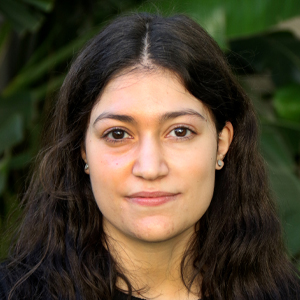
Project title: Identification of micropeptides in T. cruzi proteome
Paola Sosa Basso is a Ph.D. student and an assistant professor at the University of the Republic in Uruguay. She researches long noncoding RNAs in Trypanosoma cruzi, the parasite that causes Chagas disease. Basso obtained her undergraduate degree in biochemistry from UDELAR. She teaches courses about functional and collaborative genomics at the university.
For her PROLAB stay, she will conduct research with Thomas Kislinger, a professor of medical biophysics at the University of Toronto. Kislinger’s lab uses proteomics technologies to study cancer and cardiovascular research to identify novel biomarkers. He previously mentored a PROLAB awardee from Uruguay in 2019.
Melina Paula Bellotto
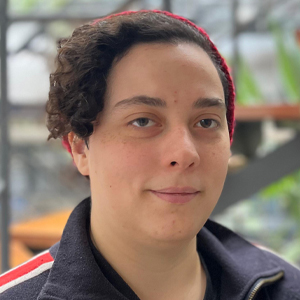
Project title: Role of the neutral sphingomyelinase in regulating the balance between secretion and degradation of pathogenic proteins in neurons and astrocytes expressing mutant amyloid-precursor protein
Melina Paula Bellotto is a Ph.D. student at the University of Buenos Aires, Argentina. She conducts research on the role of ceramides in glial cells during Alzheimer's disease. Bellotto earned her undergraduate degree at UBA studying the neurobiology of aging.
For her PROLAB award, she will conduct research with Sandra Maday, an associate professor of neuroscience at the University of Pennsylvania Perelman School of Medicine. Her lab investigates the mechanisms and regulation of autophagy in neuronal homeostasis and neurodegeneration.
Luis Francisco Méndez García
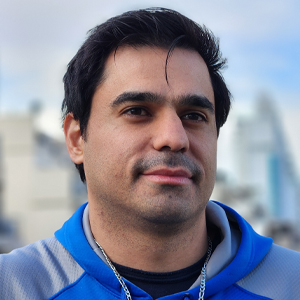
Project title: Regulation of hepatocyte nuclear factor 4 alpha by autophagy-derived fatty acids in the liver of Drd2 knockout mice.
Luis Francisco Méndez García is a Ph.D. student at the University of Buenos Aires, Argentina. He conducts research with Damasia Becu–Villalobos on liver metabolism. Méndez García earned his undergraduate degree in biological sciences at UBA and previously conducted an internship at the Center for Pharmacological and Botanical Studies studying age-related macular degeneration.
Méndez García will conduct PROLAB research with Francisco J. Schopfer, a professor of pharmacology and chemical biology and vice chair for biotechnology development at the University of Pittsburgh. His lab studies the formation and signaling of bioactive lipids to develop novel therapeutics. Schopfer previously hosted PROLAB trainees from Argentina in 2023 and Uruguay in 2017.
Juan Francisco Silva–Agüero
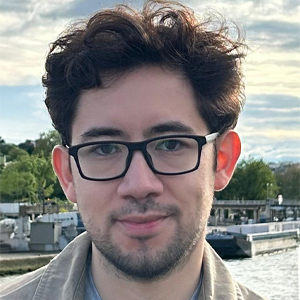
Project title: Role of the IRE1/XBP1/BDNF neuronal pathway in tumoral development of glioblastoma
Juan Francisco Silva–Agüero is a Ph.D. student at the University of Chile. He conducts research with Claudi Hetz and Hery Urra on signaling pathways in glioblastoma. He also serves as a seminar instructor. Silva–Agüero earned his master’s and undergraduate degrees in biochemistry at U. Chile. During his master’s studies, he conducted research with Valentina Parra and Mauricio Latorre on transcription factor networks in cardiac hypertrophy.
For his PROLAB award, Silva–Agüero will conduct research with Lisa M. Ellerby, a professor at the Buck Institute for Research on Aging. Her lab aims to understand the pathways that lead to nerve cell death in Huntington’s disease and other neurodegenerative disorders.
Viera Solange
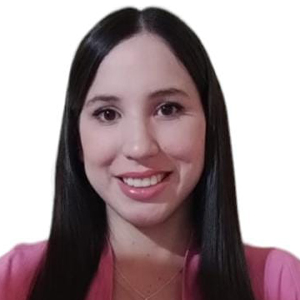
Project title: The role of PEDF peptides on müller glial cells
Viera Solange is a Ph.D. student at the Universidad Nacional del SUR, Argentina, studying retinal pigment epithelium cells and retinal degeneration. She is also pursuing a bachelor’s degree in chemistry education and currently teaches courses on cell biology and physical chemistry. Solange earned an undergraduate degree in biology, biochemistry and pharmacy from UNS. She has completed internships at the Puerto Belgrano Naval Hospital and the Felipe Glasman Medical Association Hospital.
For her PROLAB stay, she will conduct research with S. Patricia Becerra, chief of protein structure and function at the National Eye Institute, National Institutes of Health. Her lab develops new tools for studying protein structure related to retinal function. Becerra previously hosted PROLAB trainees from Argentina in 2022 and 2017.
Josefina Vicente
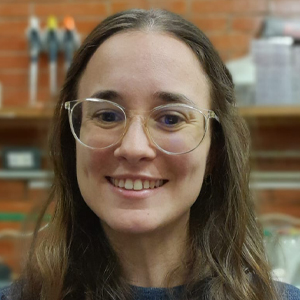
Project title: Antiviral activity of imiquimod against influenza virus in vivo
Josefina Vicente is a Ph.D. student and teaching assistant at the University of Buenos Aires, Argentina. Vicente is studying the role of Toll-like receptors during SARS-CoV-2 infection with Carlos A. Bueno. In 2024, she earned travel awards from the Argentine Society of Virology and the International Society for Antiviral Research. Vicente earned her undergraduate degree in genetics from the National University of Misiones in Argentina studying CRISPR–Cas12 detection of dengue virus with Marcos M. Miretti and Jessica V. Fay.
She will conduct PROLAB research with Mariana Baz, an assistant professor of microbiology and immunology at Université Laval in Quebec. Her lab studies the molecular mechanisms involved in respiratory virus adaptation, amplification and disease transmission as well as new therapeutic strategies.
Matías Villarruel Dujovne
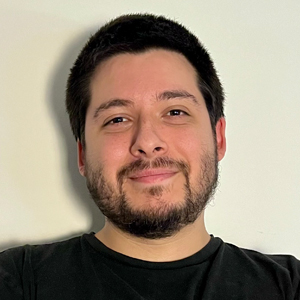
Project title: Biophysical characterization of allosteric transcriptional regulators and their application in biosensors
Matías Villarruel Dujovne is a Ph.D. student at the University of Buenos Aires, Argentina, studying allosteric transcriptional regulators with Daiana A. Capdevila. He earned an undergraduate degree in chemistry at UBA. Villarruel Dujovne previously served as a teaching assistant for general, inorganic and analytical chemistry courses.
For his PROLAB stay, he will conduct research with Julius B. Lucks, a professor of chemical and biological engineering at Northwestern University. His lab studies how RNA helps living systems sense and respond to their environment and uses this information to engineer synthetic tools.
Enjoy reading ASBMB Today?
Become a member to receive the print edition four times a year and the digital edition monthly.
Learn moreFeatured jobs
from the ASBMB career center
Get the latest from ASBMB Today
Enter your email address, and we’ll send you a weekly email with recent articles, interviews and more.
Latest in People
People highlights or most popular articles

Building a career in nutrition across continents
Driven by past women in science, Kazi Sarjana Safain left Bangladesh and pursued a scientific career in the U.S.

Kiessling wins glycobiology award
She was honored by the Society for Glycobiology for her work on protein–glycan interactions.

2026 ASBMB election results
Meet the new Council members and Nominating Committee member.

Simcox wins SACNAS mentorship award
She was recognized for her sustained excellence in mentorship and was honored at SACNAS’ 2025 National Conference.

From humble beginnings to unlocking lysosomal secrets
Monther Abu–Remaileh will receive the ASBMB’s 2026 Walter A. Shaw Young Investigator Award in Lipid Research at the ASBMB Annual Meeting, March 7-10 in Washington, D.C.

Chemistry meets biology to thwart parasites
Margaret Phillips will receive the Alice and C. C. Wang Award in Molecular Parasitology at the ASBMB Annual Meeting, March 7-10 in Washington, D.C.

